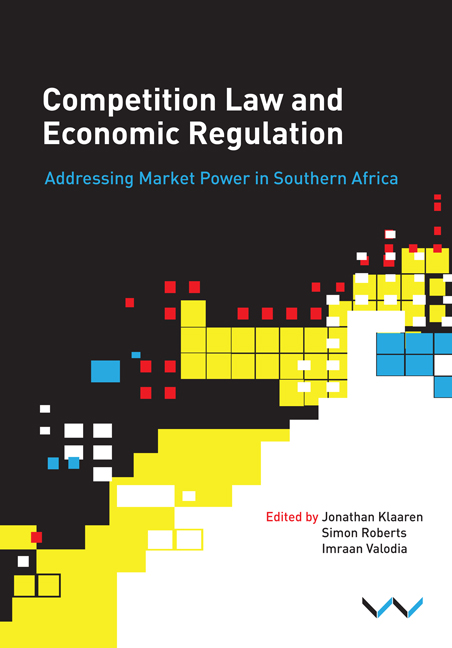 Competition Law and Economic Regulation in Southern Africa
Competition Law and Economic Regulation in Southern Africa Book contents
- Frontmatter
- Contents
- Tables, figures and boxes
- Acknowledgements
- Acronyms and abbreviations
- Introduction: The development of competition and regulation in southern Africa
- Part One Cartel law enforcement
- Part Two Issues in competition and regulation
- Part Three Competition and regulation in reshaping African markets
- 6 How multinational investments in grain trading are reshaping Zambia's market
- 7 Competition and incumbency in South Africa's liquid fuel value chain
- 8 South Africa's renewable energy experience: Inclusive growth lessons
- 9 Competition and regulation in Zimbabwe's emerging mobile payments markets
- 10 Evaluating the competitiveness of Zimbabwe's poultry industry
- Part Four Conclusion
- Contributors
- Index
9 - Competition and regulation in Zimbabwe's emerging mobile payments markets
from Part Three - Competition and regulation in reshaping African markets
Published online by Cambridge University Press: 23 March 2018
- Frontmatter
- Contents
- Tables, figures and boxes
- Acknowledgements
- Acronyms and abbreviations
- Introduction: The development of competition and regulation in southern Africa
- Part One Cartel law enforcement
- Part Two Issues in competition and regulation
- Part Three Competition and regulation in reshaping African markets
- 6 How multinational investments in grain trading are reshaping Zambia's market
- 7 Competition and incumbency in South Africa's liquid fuel value chain
- 8 South Africa's renewable energy experience: Inclusive growth lessons
- 9 Competition and regulation in Zimbabwe's emerging mobile payments markets
- 10 Evaluating the competitiveness of Zimbabwe's poultry industry
- Part Four Conclusion
- Contributors
- Index
Summary
INTRODUCTION
Mobile money has attracted global attention because of its ability to bring people from the cash-based, ‘unbanked’ economy into modern systems of ‘book-entry money’. This process is commonly referred to in the industry as ‘banking the unbanked’ (Klein and Mayer, 2011). It involves the use of mobile phone technology to make financial transactions. Generally, this allows users to engage in transactions ranging from buying and transferring airtime, to transferring funds and making payments from their mobile devices (ITU, 2011). A ‘traditional’ form of this is where banks have mobile phone applications which allow their customers to interact with their bank accounts on their phones.
As a subset of mobile banking, and of particular interest to this chapter, is the ability to transfer money in person-to-person (P2P) transactions, that is, from the bank account or mobile operator ‘wallet’ of one person, to the mobile number or mobile operator wallet of another. These services allow customers to use their mobile device to send and receive monetary value – to transfer money using their phone, which in some cases includes international, cross-border and/or domestic remittance transfers. Importantly, these services can be provided even when the sender and/or recipient does not have a bank account. In Zimbabwe, this led to rapid adoption by users since NetOne and Telecel both launched their mobile money transfer (MMT) services in January 2011, followed by Econet in September 2011. Users include customers in rural areas where access to banking services has been limited and remittance transfers from large cities and abroad are an important source of income (Dermish, Hundermark and Sanford, 2012). This is especially relevant given the withdrawal of the majority of Zimbabweans from formal banking services during the prolonged period of economic distress over the past decade, leading to a largely cash-based economy and the use of direct, informal cash transfer mechanisms, such as through minibus taxi services and travelling relatives or friends (Dermish, Hundermark and Sanford, 2012).
These aspects of mobile money have important implications in terms of competition and economic development. The ability to draw in subscribers that are unbanked and marginalised by formal financial services through simple, affordable, convenient and safe platforms contributes to greater financial inclusion (Klein and Mayer, 2011), and facilitates transactions between individuals (e.g., remittances) as well as between enterprises.
- Type
- Chapter
- Information
- Competition Law and Economic Regulation in Southern AfricaAddressing Market Power in Southern Africa, pp. 215 - 233Publisher: Wits University PressPrint publication year: 2017


